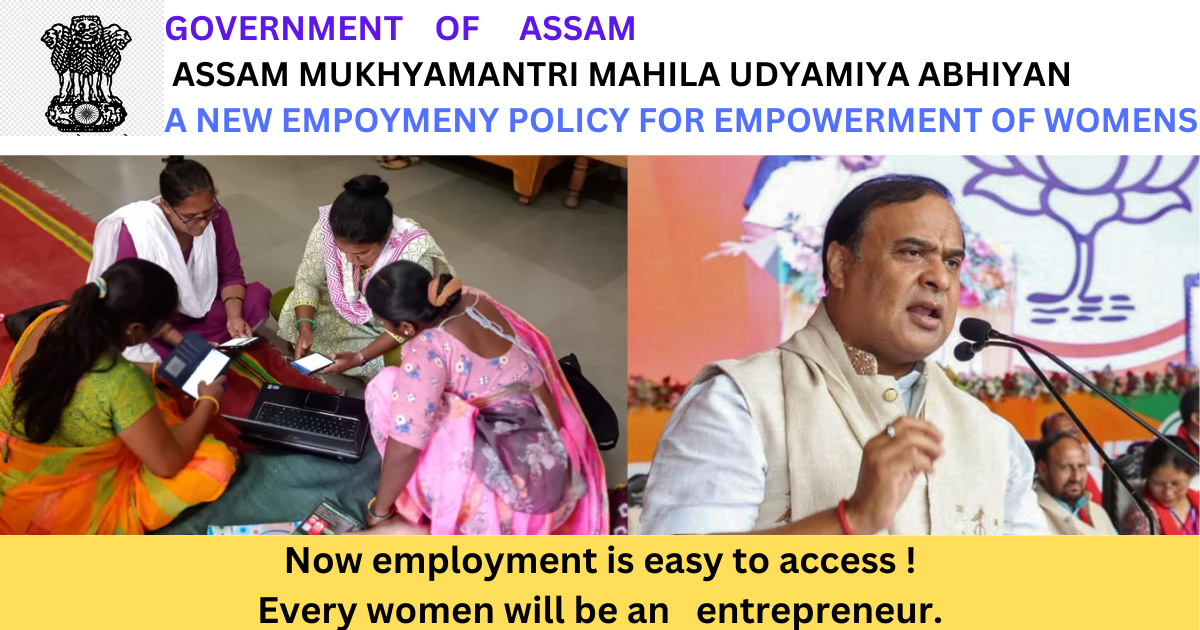
The recent announcement of the Mukhyamantri Mahila Udyamita Abhiyaan (MMUA) by the Assam government has stirred controversy due to its unique conditions, particularly the imposition of a cap on the number of children for women entrepreneurs seeking financial support. The scheme, aimed at fostering rural women entrepreneurs, has triggered discussions about the intersection of women’s empowerment and population norms. This blog explores the details of the MMUA, the conditions set forth by the Assam government, and the ensuing debate surrounding its implications.
Overview of Mukhyamantri Mahila Udyamita Abhiyaan (MMUA)
- The MMUA, introduced by Assam Chief Minister Himanta Biswa Sarma, aims to uplift rural women involved in self-help groups, transforming them into “rural micro entrepreneurs.” The scheme envisions providing financial assistance to women, with an annual income target of Rs 1 lakh for each member. However, the conditions attached to the scheme have raised eyebrows, particularly the restriction on the number of children women can have to avail themselves of its benefits.
- Under the MMUA, women from general and OBC categories are restricted to having no more than three children, while those from Scheduled Tribes (STs) and Scheduled Castes (SCs) can have up to four children. This move aligns with the Assam government’s broader agenda of tying beneficiary schemes to “population norms.” Chief Minister Sarma defended these conditions, asserting that they are intended to ensure that women focus on utilizing funds for their businesses rather than being occupied with childcare responsibilities.
Debates and Criticisms:
Critics argue that linking financial support to the number of children may inadvertently marginalize vulnerable communities and reinforce stereotypes about women’s roles. Additionally, concerns have been raised about the potential exclusion of a significant number of women from the scheme due to these conditions.
Conditions and Eligibility Criteria:
Apart from the child limit, beneficiaries must fulfill two other conditions to avail the MMUA benefits :
- They must ensure the enrollment of their girl children in school, or if not of school-going age, commit to enrollment when the time comes.
- Furthermore, the survival of trees planted under the government’s tree plantation drive is a prerequisite.
The Mukhyamantri Mahila Udyamita Abhiyaan’s introduction has opened avenues for both empowerment and controversy. As the Assam government endeavors to strike a balance between promoting entrepreneurship and implementing population policies, the ensuing discussions highlight the delicate intersection of social policies and individual rights. The evolution of this scheme and its impact on rural women entrepreneurs will undoubtedly be closely observed, with ongoing debates shaping the narrative around women’s empowerment and reproductive choices in the region.
Top of Form
